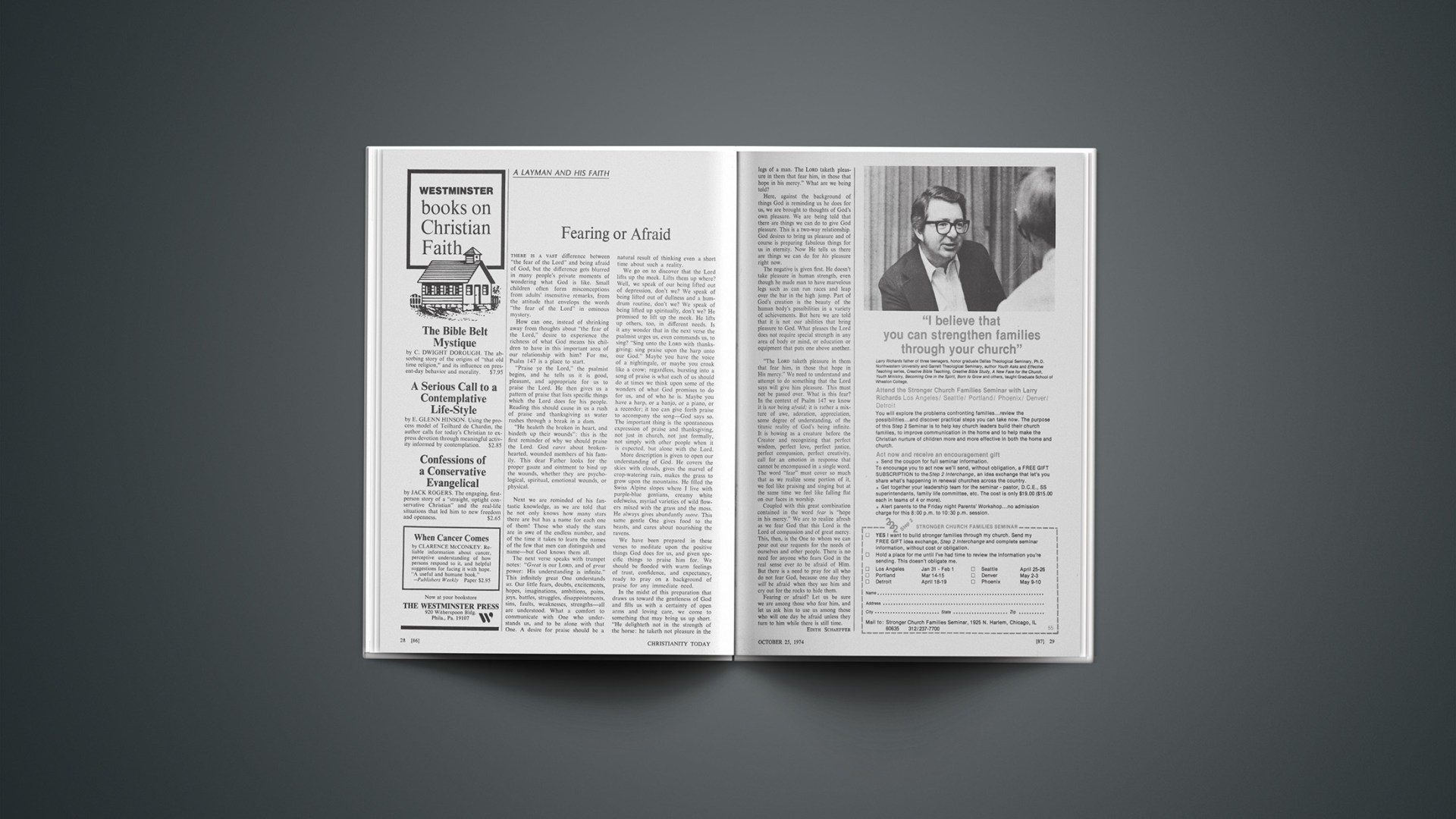Preachers are ordinarily pleased with their own preaching. They are all sometimes disappointed that on a particular Sunday they were not quite up to their usual standard, but they are likely to think that there are good reasons for this lapse. They have not been feeling up to par, or the unavoidable pressures of other pastoral duties have kept them from doing their best at preaching.
However, seeing the low estate to which the power of the pulpit has sunk in this day, an investigation to discover the real cause seems called for. Since the purpose of an investigation is to place blame squarely where it belongs, the investigator is not always regarded fondly by these whose work is being examined. A friend of mine who is a professional investigator of aviation accidents says that the biggest obstacle to discovering the cause of an airplane crash is a live pilot.
But preachers have taken refuge behind weak excuses long enough. The problem is not that people are too saturated with television and worldly entertainments. To say that this is not the day of great pulpiteers is to beg the question. If it is not, why not? It should be!
Can the preacher help it if he does not have the gift of being an interesting speaker? But God did not say, “Preach the Word interestingly.” Some preachers do not have attractive personalities. But God did not say, “Preach the Word attractively.” Nor did he say to preach it entertainingly or dynamically or flamboyantly. God said to preach the Word faithfully—“in season, out of season” is the King James phrase. If this is done, the results are guaranteed.
The trouble is that it has not been done. Preachers assume that when they have taken a good subject, told the truth about it, and illustrated it biblically, they have preached the Word. This is not so. The subject may be as sound and basic as “Praise God.” The preacher may read Scripture about Abraham or Moses praising God. He may turn to the Psalmist’s ascriptions of praise to God, and then draw examples from the New Testament and from modern-day experience. But where is the eternal principle? Where is the “Thus saith the Lord”? The Bible is absolute truth. What is the absolute principle concerning praise of God that he has given for all people of all ages, the principle binding upon us and useful to us now and forever? Until the preacher has shown that the Bible speaks to us in this way, he has not preached the Word.
It is possible that some who use the Bible most in their sermons are preaching the Bible the least. The preacher who uses Scripture just for illustrative purposes, or who habitually turns from one passage to another, is probably trying to support his own ideas. Although his ideas may be sound and good, this is not preaching the Word of God.
The principle or precept does not have to be earth-shaking or magnificent. It just has to be God’s precept for us. They are all important and helpful.
Take, for instance, the simple verse in Isaiah 26:10. God says, “Let favor be shewed to the wicked, yet will he not learn righteousness.” The passage goes on to tell how the wicked will respond in evil ways to kindness. Here is set before us an eternal truth. The kind favors of God or of men will never turn the wicked to righteousness. The verse says that they will continue to deal unjustly and will refuse to honor the majesty of God.
You may have to think about this to realize the truth and importance of what God is saying. However, the Word of God here teaches a principle that was true concerning the wicked in the day of Isaiah and is true of the wicked today. Let Christian parents know, for example, that although they show their children kindness and provide all needed worldly benefits, this will not deliver their children from the curse and blight of original sin. To explain the relational truth of this verse, expounding this revealed concept and the grace of God, is properly preaching the Word.
We might figure out that the unrighteous are not changed by kindness. We might learn it from experience. However, we could never declare that this principle is always true except by knowing and showing that it is the Word of God. We honor God and his Word when the subject and substance of the sermon are directly from the Scriptures. Then alone can we say, “Thus saith the Lord.”
Although expository preaching of the Word will not necessarily draw crowds, by the will of God it will be used to save and sanctify his remnant. This will not happen without the work of the Holy Spirit, but true biblical preaching is what the Spirit promises to use.
The Spirit breathes upon the Word,
And brings the truth to sight.
Precepts and promises afford
A sanctifying light.
—The Rev. RICHARD G. WATSON, pastor, Seminole Presbyterian Church, Tampa, Florida.










